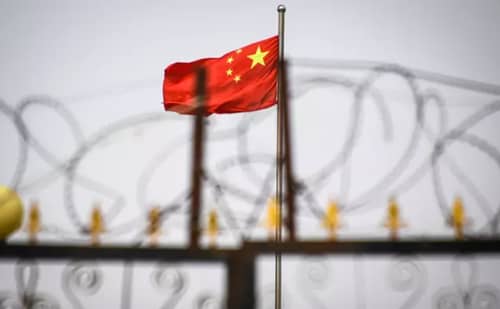 |
| Amazon uses suppliers associated with forced labor |
Amazon is working with Chinese suppliers associated with forced labor, according to a report by the Technology Transparency Project (TTP), a research group of the nonprofit Watchdog Accountability Movement.
The report accuses Amazon of continuing to work with these sellers despite evidence of their links to Uyghur labor camps.
The Uyghurs in China are the country's Muslim minority, and are primarily concentrated in China's Xinjiang region.
For several years, the group has suffered from a range of human rights abuses in the country, including concentration camps, constant surveillance, and forced labor.
As TTP points out, China uses so-called labor transfers to bring Uyghurs from the Xinjiang region to factories across China.
This often forces them to participate in forced labor programs linked to a network of mass concentration and rehabilitation camps.
TTP has identified five companies on Amazon's Supplier List that have been publicly condemned for being directly or indirectly linked to the forced labor of the Uyghur people in China's Xinjiang region.
Among other things, Amazon suppliers are responsible for producing Amazon-branded products such as the Echo, Fire TV, Kindle, and many more products sold as part of the Amazon Basics portfolio.
TTP found that three Amazon suppliers used forced labor themselves. Two other companies are indirectly involved. But they benefit from suppliers accused of forced labor.
As TTP points out, Amazon's supply chain standards specifically exclude forced labor. Its standards state that its suppliers must not use any form of forced labor. All actions must be voluntary. Workers are free to leave their jobs and terminate their employment or other working conditions with reasonable notice.
Linking Amazon suppliers to forced labor in Xinjiang
In addition to accusing Amazon of using suppliers in connection with forced labor, TTP also disclosed accounts selling cotton from Xinjiang, which the US government banned last year.
Some countries have also imposed sanctions on Xinjiang. The United States banned imports from Xinjiang in December.
Apple and Amazon aren't the only US companies with ties to Xinjiang and forced labor.
Earlier this year, Tesla was criticized for opening a showroom in Xinjiang. She was also mentioned in the TTP report as a customer of the aforementioned lens technology since December 2020.
An Amazon spokesperson said: “Amazon complies with the laws and regulations of every jurisdiction in which it operates. It expects its suppliers to comply with our supply chain standards.
"We take allegations of human rights violations very seriously," she added. Including those related to the use of forced labor. Whenever we find or receive evidence of forced labor, we take action.